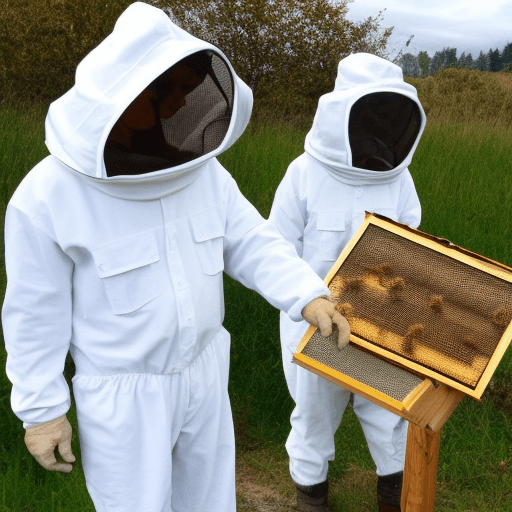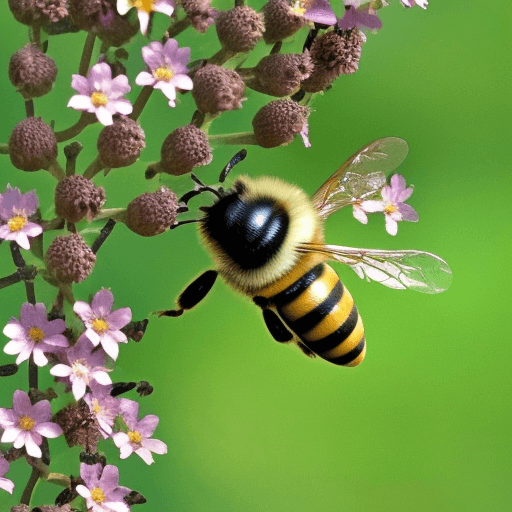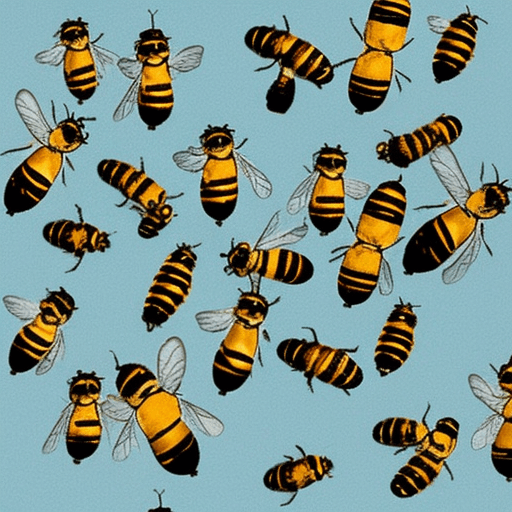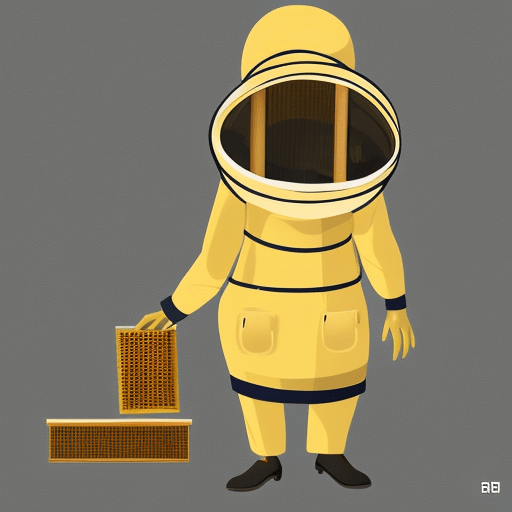How to be a beekeeper?
Do you want to help the environment?
Well, then becoming a beekeeper might be the perfect hobby or profession for you!
Beekeeping is a great way to get involved in your community, and it’s a fun way to learn about the natural world.
Today we will beeeee discussing the basics of beekeeping.
We will cover everything from getting started to maintaining your hive.

Becoming a beekeeper is an exciting and rewarding endeavor, but it’s not something to be taken lightly.
Here are some tips on how to become a successful beekeeper: learn the basics, set up your hive, obtain bees, monitor the activity & health of the colony, and follow local regulations.
Explain it to a child
To start beekeeping, you need to find a place to get high-quality bees, build a hive for the bees using special structures and frames, learn about how bees behave, understand what they need in every season, and check on the bees regularly to make sure they are healthy.
How to be a beekeeper?
If you want to learn how to be a beekeeper, there are a few things to consider before you begin.
- First, it’s important to understand how much work is involved
- How often will you need to check the hives?
- How much time can you devote to researching beekeeping?
- How large of an area do you have available for the bees?

Once these questions are answered, there are other considerations such as what type of beekeeper you want to be and what equipment will be required.
After setting up your hive and giving the bees a good place to live, it is important to stay informed about the best practices of apiculture – elements like using natural treatments when possible, minimizing pests naturally, and maintaining good nutrition.
As a beekeeper, learning how to care for the bees while following safety guidelines is incredibly rewarding and allows one to advocate for more environmentally friendly practices by protecting pollinators.
Steps on how to start beekeeping
Beekeeping is a great way to produce honey and help the environment by pollinating plants.
To start beekeeping, you will need to:
- Find a local source for high-quality bees
- Establish your hive with specialized structures and frames
- Become familiar with your bees’ behaviors
- Understand their needs in all seasons
- Regularly inspect the colony for illness or disease

You’ll also have to invest time into learning about bee biology, creating a calendar for hive maintenance, developing an outdoor environment that can support the bees in your area, and ensuring the safety of your bee population.
It may seem daunting at first, but taking these steps will ensure that you have success in beekeeping.
How to become a professional beekeeper?
For those looking to break into the rewarding and exciting career of professional beekeeping, there are a variety of steps to take.

First, aspiring beekeepers must become knowledgeable in:
- Honeybee biology and behavior
- Essential activities such as hive maintenance
- Principles of modern beekeeping management
Understanding these fundamentals will provide a great foundation for developing expertise in this profession.
Additionally, applicable local laws and regulations must be taken into consideration when considering setting up a business or keeping bees at home.
Finding the right mentor with experience in beekeeping will also be invaluable in achieving success.
Lastly, aspiring beekeepers should develop marketing strategies to create buzz around their services or products offered by the brand!
With dedication, passion, and knowledge of core principles and tactics, anyone can achieve their goal of becoming an established professional beekeeper.
When to start beekeeping?
When it comes to beekeeping, the earlier the better.
Although the hive needs time to establish and mature before it can become useful, starting early ensures that you can gain as much experience and knowledge as possible as a beekeeper.
Starting your colony in early spring ensures that you have a healthy second generation of bees by summer.
When scouting for colonies make sure to choose a location with an ample food supply and enough room for them to set up their hives comfortably.
Establishing your hives before the cooler temperatures arrive is important for maintaining their health in order to ensure a successful beekeeping season.
When you’re ready, strap on your beekeeper’s suit, grab some tools, and start your adventure into the fascinating world of beekeeping!
Do you need qualifications to be a beekeeper?
The answer is usually yes.
Although owning honeybees doesn’t necessarily require formal qualifications in many places, having at least a basic understanding of beekeeping techniques and principles will help ensure that they are kept safely and humanely.
That being said, some states offer certifications that are necessary to perform maintenance tasks on hives as well as choose your own custom treatments alongside more information on bees and their behavior.
Becoming beekeeping certified could be the key to expanding your knowledge on these topics while also giving yourself the confidence of being a responsible beekeeper, no matter what state you live in.
By following these guidelines along with proper equipment setup combined with ongoing monitoring throughout entire season cycles, anyone has the opportunity to become a great beekeeper nowadays achieving success once dreamed might never be expected!
Article Sources
Jacks of Science sources the most authoritative, trustworthy, and highly recognized institutions for our article research. Learn more about our Editorial Teams process and diligence in verifying the accuracy of every article we publish.
